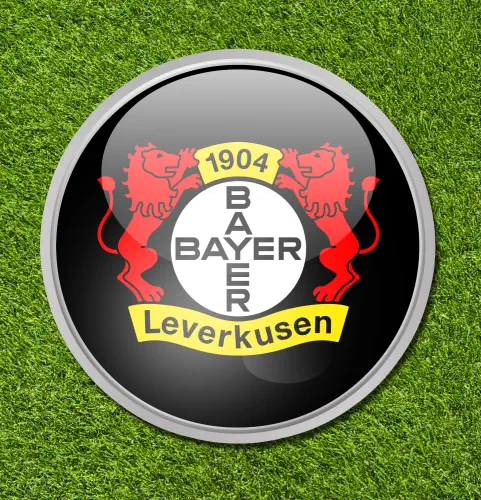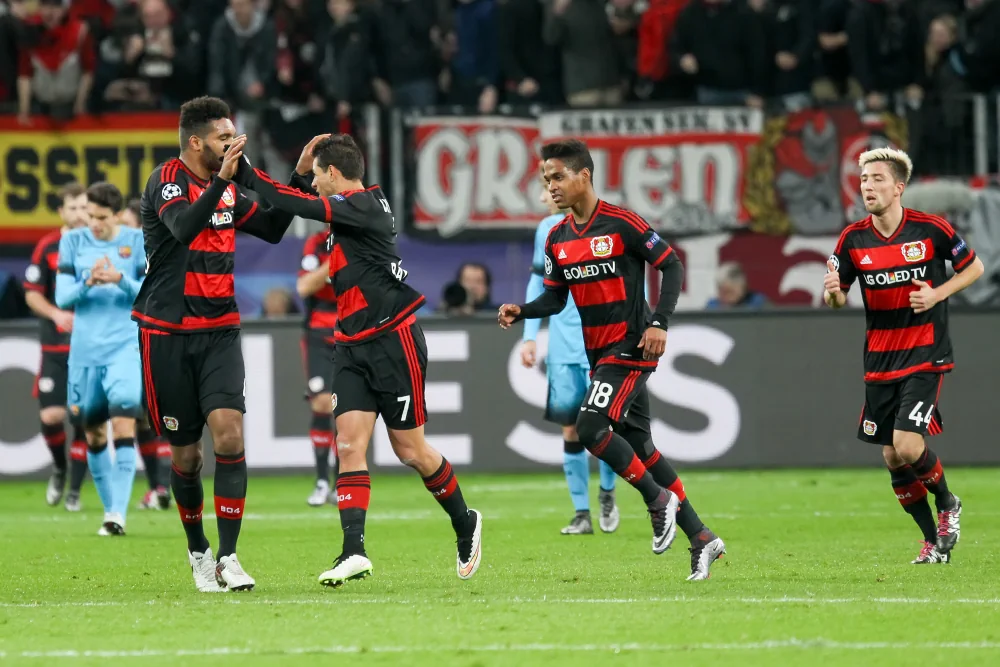Where does Bayer Leverkusen's nickname Neverkusen come from
Just like there are football clubs that are deeply associated with success and trophies, as we can see with the likes of Real Madrid or Bayern Munich, we also have the opposite case: clubs that are linked to failures, defeats or "almost being close to winning" that may be due to different moments in their histories that created that fame.One of those cases, which has become almost iconic and a reference in that part of the world, at least in their country, Germany, is Bayer Leverkusen, which, funny enough, is one of the most important teams in the Teutonic country but at the same time is a club that seems to always lack a little something to achieve success. This is exemplified in several key moments in their history where the club rose to victory and failed in key moments in the most unexpected way.
This was leading to the club earning different nicknames referring to those events such as "The Eternal Runner-ups" or "Bayer Neverkusen" and that is why we are going to explain those key moments through a summary of history below of the club.
Origin of the club

Because gymnastics was not a discipline that attracted young men in the area, some members of the club decided to form the football section and, shortening the name of the institution, they formed TuS 04 in 1907. The club started in divisions amateur and little by little he was ascending in the different levels of German football. In 1968, they managed to get closer to the top flight of Germany but, despite having a great season and finishing at the top of the Regionalliga West, they fell in the play-offs for promotion.
The era of success
It would be in 1979, already under the name of SV Bayer 04 Leverkusen, that they would manage to reach the Bundesliga, a level that they would not leave at least to this writing. At the end of the 1980s, more specifically in the 1987-88 season, it was certainly worth to bet your money on Bayer Leverkusen as the aspirin club would achieve its first (and only) European title in its history, the UEFA Cup, where they would defeat clubs like Feyenoord or FC Barcelona and beating RCD Espanyol in the final, who had won the first match 3-0, although Leverkusen managed to repeat the result in the second match and ended up lifting the trophy after penalties.
The birth of "Neverkusen"
By the late 1990s, the club had established itself as one of the potential title contenders after finishing second in the Bundesliga in 1997 and 1999, both times behind Bayern Munich. In the following season, everything seemed on track for Leverkusen to win their first German league as they reached the last day needing a draw against modest side SpVgg Unterhaching, who were in the middle of the table and whose position was not to be seen affected by the outcome of the match. However, the aspirin club would lose 2-0 to an own goal by Michael Ballack, handing the title to Bayern Munich at the last minute.In the 2001-02 season, Leverkusen had a great team that included names like Ballack himself, Ze Roberto, Lucio, Nowotny, Schneider or Dimitar Berbatov, just to name a few. At the end of the season, near the end of April and beginning of May 2002, the club arrived with the possibility of winning a historic treble: DFB Pokal, Bundesliga and UEFA Champions League since they were league leaders and were in the final of the two cups.
In the DFB Pokal, they would go down 4-2 against Schalke 04 (yes, Schalke) despite starting the match with a goal from the Bulgarian Berbatov. In the Bundesliga, they suffered a setback in the last three games of which they lost two and that allowed Borussia Dortmund, their closest competitor, to win 9 points and overcome Leverkusen to take the Bundesliga to North Rhine-Westphalia.
Having lost two of the three titles in dispute, the UEFA Champions League final arrived which, without any surprise, was the club's first and only one to date, against Real Madrid, who were in their centenary year and logically sought to win "their" competition. At the beginning of the match, Raúl would take advantage of a careless defense by the German team to score the first goal of the game, but the Brazilian defender, Lucio, would quickly equalize the match. The match would remain level until Solari launched a long pass to Roberto Carlos who settled the play with a high cross and Zidane turned it into one of the best goals in UEFA Champions League history.
The second half would be a siege of Leverkusen and things seemed very likely to end in a draw, especially after the injury of Cesar, the Real Madrid goalkeeper. However, his replacement, a young Iker Casillas, had a performance to remember and did not allow the German club to score a equalizer.
In this way, the treble of second places for Bayer Leverkusen was completed, creating this fame that has accompanied them since then despite being a model club in different aspects of sporting and economic management but that has not been translated into trophies to leave the events of 2000 and 2002 in oblivion.
